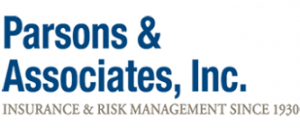Swimming, swimming
Swimming, swimming
A swimming pool can be a rewarding addition to a backyard. It offers a place for family to gather, and provides fun and excitement for children and adults alike. Whether you already have a pool or are preparing to have one installed, there are a number of important considerations you should know.
Notify us. It is important that homeowners considering installing a pool, or purchasing property with a pool on it, notify us.
We can advise you on insurance, such as maintaining adequate limits. Often, a standard homeowners policy serves as the first layer of coverage for a home with a pool, but is not sufficient to fully cover a homeowner. Swimming pools are frequently deemed by courts to be unusually attractive to children; accordingly, homeowners cannot simply post a “no-trespassing” sign and assume they have insulated themselves from liability. Because of the elevated risk of liability, a conversation with our agency can help ensure that you have the proper layers of coverage to protect yourself and anyone else who may be injured at the pool.
Local codes & permits. Most, if not all, municipalities strictly regulate the construction of pools. Installing a private swimming pool is a significant construction project. Accordingly, the plan must be approved by your local building inspector or the authority that has jurisdiction over such construction. A pool that is not constructed to code may fall outside of an insurance company’s underwriting guidelines, and cause significant issues with insurability.
Assuming that a pool already is constructed properly, the owner of the pool must comply with a number of safety measures. Frequently, local governments are the entities that enact laws that address this issue. The requirements for barriers, fences, gates, latches and the means of direct entry into a pool area are designed to provide protection against accidental drowning, particularly for small children. While these can be the requirements of the town or locality where the pool is located; your insurance carrier may demand additional safeguards, or may seek evidence that these safeguards were installed properly and that they have been maintained adequately. To ensure your coverage is not affected, make sure we are aware of all the safeguards you have installed.









Leave a Reply
Want to join the discussion?Feel free to contribute!